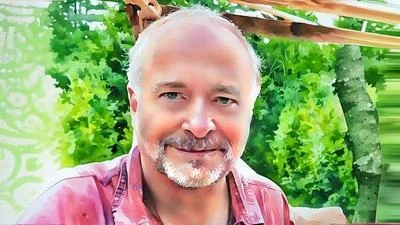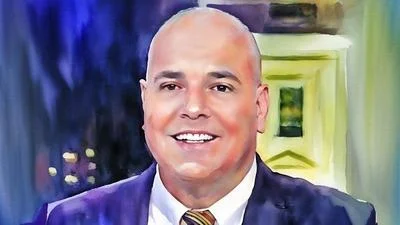Debates over public health policy are often driven by fear and political posturing, and Guy Bentley is making the case for a return to reason—literally.
As Director of Consumer Freedom Research at the Reason Foundation, Bentley warns against the creeping hand of bureaucratic overreach, arguing that misguided policies not only fail to protect public health, but also chip away at personal freedom and human agency. His work is a call to rethink how we weigh risk, write rules, and respect individual choice.
Bentley began his career as a journalist but transitioned into public policy. He says he wanted to advocate policies he thought “could increase freedom, prosperity, and well-being.” He interned with Reason in 2013 after college and later crossed over from reporting to shaping policy. His focus now centers on the regulation of consumer choices and the broader implications of overregulation.
Today, he warns about the dangers of policies formed during times of panic. He points to the vaping-related lung injury crisis in 2019, where initial assumptions falsely implicated nicotine e-cigarettes. “What they were, were illicit marijuana—THC cartridges that had been tainted with something called vitamin E acetate,” he says.
Rather than investigating the cause, public health officials “recommended that everyone just stop vaping altogether, which is terrible if you’re a smoker trying to quit smoking,” he says. He believes this led to widespread misconceptions that e-cigarettes are more dangerous than traditional cigarettes—an idea that he says is “the opposite to the truth.”
Based on the evidence, Bentley contends that nicotine alternatives, including vaping products, for example—can be innovative solutions to public health problems. “Nicotine… is not the harmful part of smoking,” he says.
He criticizes campaigns like those from the Truth Initiative, which were originally anti-tobacco and have shifted to targeting nicotine more broadly. “They now have moved on to wanting a nicotine-free society,” Bentley says, calling this a form of “mission creep” by government agencies and advocacy organizations.
He also points to efforts to revise alcohol guidelines as another example of the government going too far. He notes that moderate alcohol consumption has long been shown to carry lower mortality rates than both heavy drinking and abstention. “There has been a campaign… to say… there is no safe level of alcohol—which is completely unscientific,” he says.
He cites a 2024 National Academy of Sciences report affirming the safety of moderate alcohol use. “Hopefully again, we will see what the new dietary guidelines say, but I think it would be quite ridiculous if they go along with this route.”
A central theme in Bentley’s work is comparative risk assessment—an often-neglected principle in regulatory policy. “We do a very bad job at assessing the unintended consequences and the risks that ensue,” he says.
He illustrates this with a proposed EPA rule targeting ethylene oxide, a gas used to sterilize medical devices. “You cannot have a medical procedure in the United States without having at least one device or piece of equipment disinfected with ethylene oxide,” he says. Bentley argues the regulation ignored the health consequences of removing such a vital component from the medical system.
He draws a connection between expansion of government power and cronyism. “The larger the government is, the more power government has to make these decisions,” he says. He stresses the importance of preserving individual agency and community-based support systems over bureaucratic control.
Though originally from the UK, Bentley is drawn to American-style liberty and its intellectual underpinnings. “I was enormously admiring of what Margaret Thatcher did in the 1980s… She really turned around the UK economy,” he says. His political philosophy, inspired by classical liberalism, led him to work with free-market institutions in Britain and the United States.
For Bentley, every new debate over health regulations indicates a trend toward government overreach. “We cannot have government agencies and bureaucrats in remote places managing our lives for us,” he says. “If we can’t master that ourselves… we really are very far away from being an independent and free people.”









